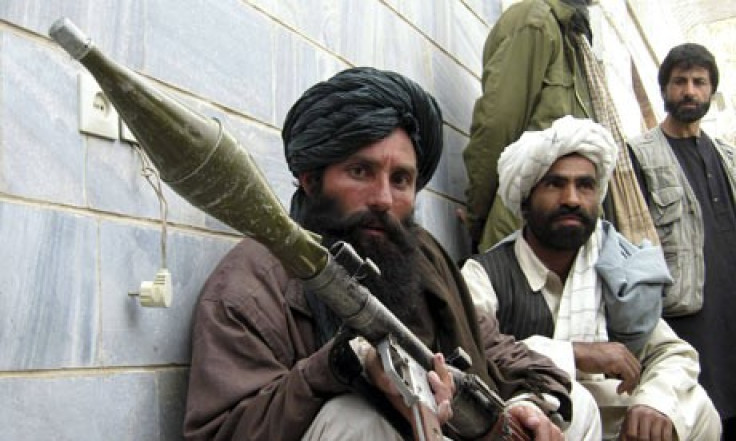Taliban Trying to Sabotage Afghan Transition: U.K military official

Following a surge of Taliban attacks in Afghanistan, British army commanders have said that despite the insurgents' attempt to sabotage the security handover in the southern Helmand province, Afghan police and troops can protect the area after a year of preparation and training.
According to Lieutenant-Colonel Alastair Aitken, commander of the 4th Battalion, the Royal Regiment of Scotland, the July handover will be a formality, that will make "no difference at all" on a day-to-day basis as Afghans have been in charge of the city since last summer.
"It is not since August in 2010 that ISAF last intervened in a security incident within Lashkar Gah city," Aitken said.
"But as a symbol actually it means quite a lot because it means that the Afghans can definitely say publicly that they are in charge of security," he added.
Lashkar Gah, the busy capital of the southern province of Helmand, is the most volatile of the seven areas where NATO-led forces in late July will kick off a years-long process of transferring security control to their Afghan counterparts.
The transfer will prove important as it is set to constitute a key test following NATO's plan to hand security across the country to Afghan forces by the end of 2014.
Analysts have warned that the Taliban will be able to gain more grounds once the Karzai government is left to control the country on its own.
By upping their counter-insurgency attacks and tactics the Taliban are openly trying to undermine the confidence of the Afghan forces and tarnish their image inside as well as outside the country.
They are aware that the Afghan public could turn against the government, should it fail to stop the Taliban from continually attacking and targeting civilians.
"They are constantly trying to disrupt ... That is the sort of thing we anticipate," Colonel Andrew Jackson, deputy commander of Task Force Helmand, the British-led contingent in Helmand, told Reuters in an interview Sunday.
"The insurgent will still try to undermine the process but I remain confident in the ability of the Afghan security forces to contain and rebut it," Jackson added.
Despite the Afghan police being described by many as corrupt, British army chiefs insist the security forces have made great strides in Lashkar Gah, where they man checkpoints throughout the city.
Helmand, a Taliban stronghold for decades, is one of Afghanistan's most violent provinces. Some 375 British soldiers have died in Afghanistan, mostly in Helmand, since 2001, including 24 killed so far this year.
Dismissing analysts and rights groups' fears, Jackson said in the three central districts of Helmand where British forces are deployed "this year is progressing substantially better than in previous fighting seasons."
The annual Taliban offensive "hasn't happened to the same extent as we expected" and fewer fighters appeared to have infiltrated the British-patrolled area of Helmand, he said.
"We've certainly seen less of the more important commanders coming in. I'm not quite sure why that is.
"It's either because they feel scared that if they do come in they will be killed ... or it's because they feel that they simply can't operate in the area that they find themselves in."
However, while the number of "significant acts", bomb blasts or Taliban attacks is down sharply on last year in the British area of operations, it is still running at a rate of about 90 per week, according to military sources, which is more than worrying.
The comments from the British military officials back Obama and Cameron's claims that following the efforts and programme set up in the last ten years, the Afghan security forces are now able to take charge of the country.
"If the security situation continues to improve at the trajectory that it is at the moment, then by the end of next year we can readily lose 500 soldiers, but we will keep the situation under constant review", U.K Prime Minister David Cameron said last week when announcing that Britain would shrink its force in Afghanistan by some 900 troops to 9,000 by the end of 2012.
© Copyright IBTimes 2024. All rights reserved.





